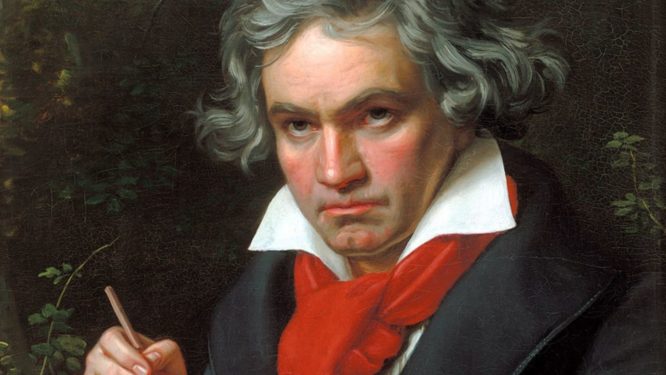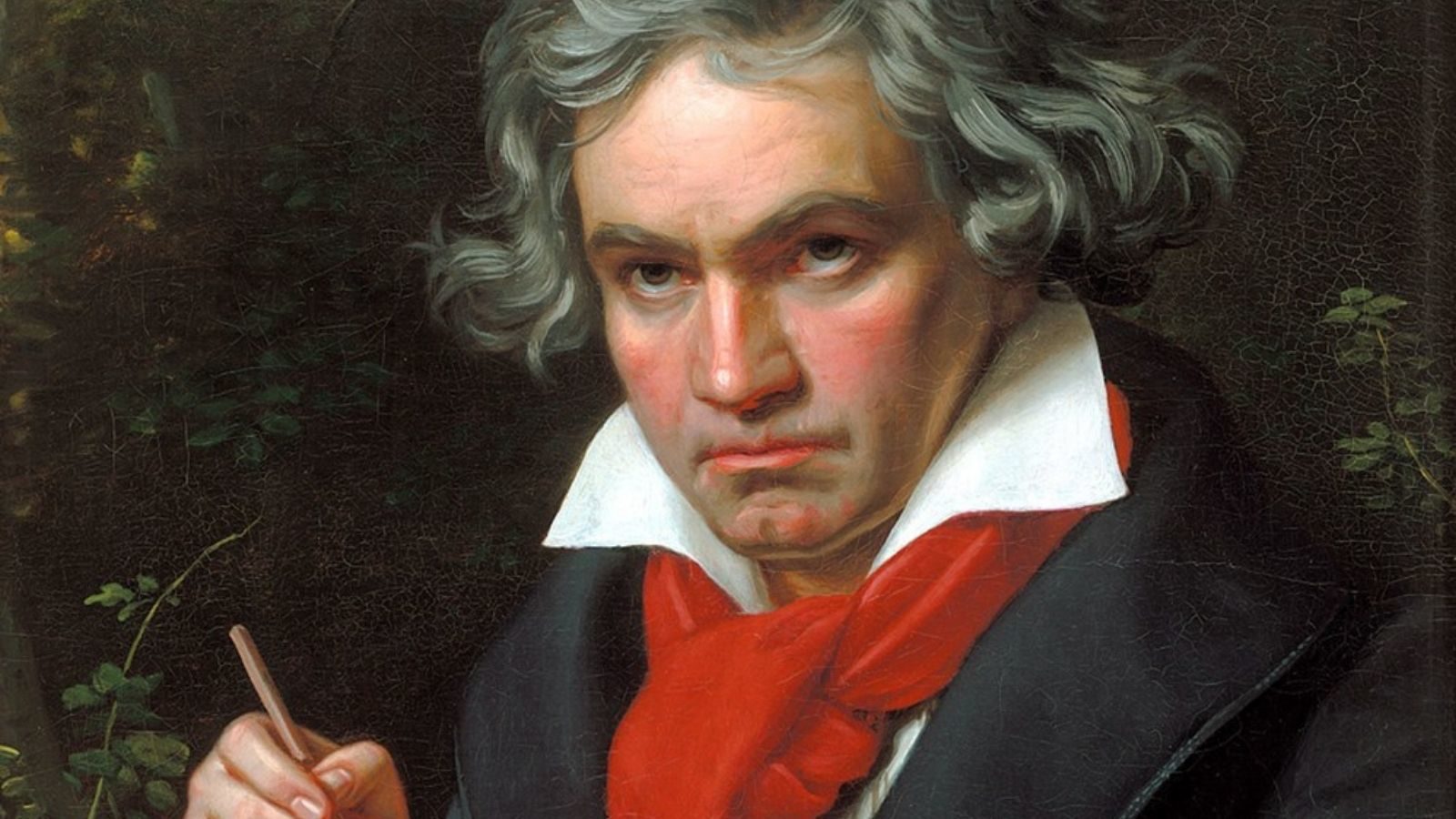Ludwig van Beethoven

DATES
Born December 16, 1770 in Bonn, Germany
Died March 26, 1827 in Vienna, Austria
NATIONALITY
German
STYLE/PERIOD
Classical 1750-1820
FAMOUS WORKS
Symphonies 1 through 9, Moonlight Sonata, Fur Elise, Fidelio, and Missa Solemnis

BIOGRAPHY
Beethoven grew up in Bonn, Germany in a very unhappy home. He was forced to practice the piano by his father, an abusive alcoholic who would punish him mercilessly when he made mistakes. By the time he was twelve, he was earning a living for his family by playing organ and composing. He was eventually known as the greatest pianist of his time. One of Beethoven’s favorite foods was macaroni and cheese. He also loved strong coffee – exactly 60 coffee beans to one cup.
Beethoven never married even though he proposed to plenty of women who rejected him (he wasn’t very attractive and he had a rather nasty temper). Yet in spite of his unpleasant personality, Beethoven is best defined by his music.
His first two symphonies are very much in the same style and form as those of composers that came before him, most notably Franz Joseph Haydn, his teacher. But Beethoven’s writing–as seen in his third symphony–had developed beyond that of his teacher. Named Eroica, his Third Symphony was so different from the ones that had come before that it changed music forever. Its originality and innovation even inspired others to change the way that they composed. It was originally dedicated to Napoleon Bonaparte. But when Beethoven heard that Napoleon had proclaimed himself Emperor, he went into a rage and destroyed the title page.
Although Beethoven gradually lost his hearing, he continued composing. He composed many of the most famous musical works of all time, such as his Ninth Symphony, after he had become totally deaf.